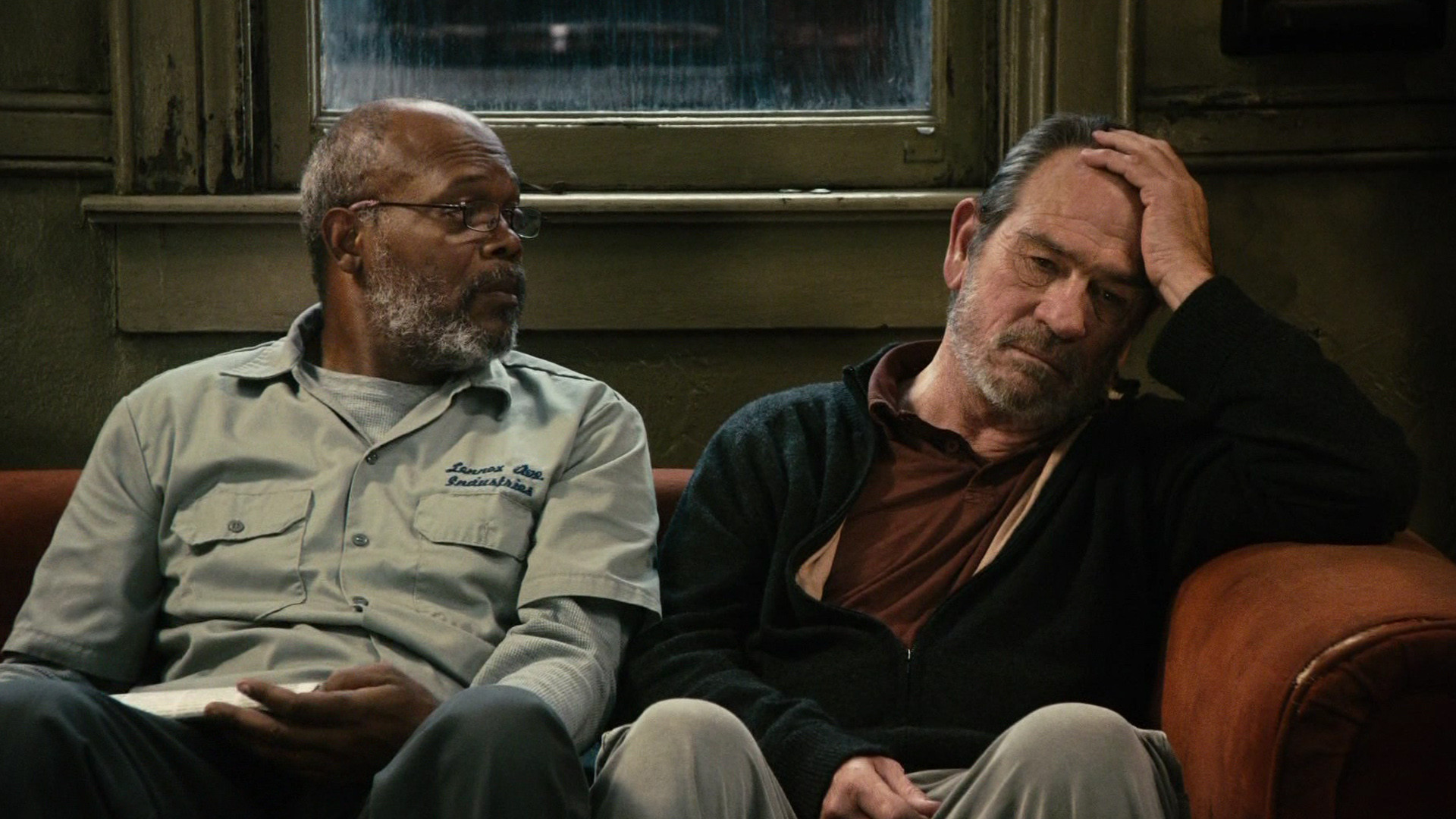The second factor (and truly the only other one required to pull you in if the first factor wasn't tempting enough) is the fact that the movie stars Tommy Lee Jones (who is also the director) AND Samuel L. Jackson, aka AGENT K AND MACE WINDU, delegates from two nations on the map of my childhood (MIB and Star Wars)!!
I've never seen
Essentially, like all plays, The Sunset Limited's success depends on its screenplay and its actors' performance; therefore, as the three people involved are Cormac McCarthy, Agent K and Mace Windu, the film didn't go very wrong.
The Sunset Limited opens with Black and White (I'm not being racist, those are really their names) sitting at a table, White looking depressed and Black consolatory. We learn that White planned on jumping in front a train, the Sunset Limited, and would have succeeded had Black not yanked him out of harm's way.
For the remainder of the night, the two dispute over many thing, at the core of which is the veracity of the Bible. Perhaps the most expedient way of understanding the film is to simply make the direct (albeit pithy) connection that the Sunset Limited = death, yet to White, death = more than just the Sunset Limited. In a line that will remain in my head forever, White claims that all despondent beings are merely "terminal commuters in a moral leper colony" and death is the reprieve. Black disagrees, and attempts (with a slew of jailhouse stories) to waylay White's escape attempts and convert him. But White is resolute and acclimatized to sorrow. Ultimately, he is the one 'wins' the argument, leaving Black alone to wonder why the God he trusted did not arrive to settle the conflict. in his favor.
I don't regard my state of mind as some pessimistic view of the world. I regard it as the world itself. Evolution cannot avoidbringing intelligent life ultimately to an awareness of one thing, and one thing above all else. And that one thing is futility.
Show me a religion that prepares one for nothingness, for death. That's a church I might enter.Yours prepares one only for more life, for dreams and illusions and lies. Banish the fear of death from men's hearts...They wouldn't live a day. Who would want this nightmare but for fear of the next? The shadow of the axe hangs over every joy. Every road ends in death, every friendship, every love. Torment, loss, betrayal, pain, suffering, age, indignity, hideous lingering illness...and all of it with a single conclusion for you and every one and every thing you have ever chosen to care for. That is the true brotherhood, the true fellowship. And everybody is a member for life. You tell me that my brother is my salvation? My salvation? Well, then damn him. Damn him in every shape and guise and form. Do I see myself in him? Yes, I do. And what I see sickens me.
I want the dead to be dead - forever. And I want to be one of them. Except that of course you can't be one of them. You can't be one of the dead, because what has no existence can have no community.
 White is not repudiating the antediluvian beliefs known to men, neither is he merely 'upset.' Cognizant that death is the terminus for everything on earth, the one for which we are not prepared for, perhaps he seeks death simply (ok, understatement) because the passage of life is a redundancy. To White, death is a nostrum for the "futility" of life. In Black's perspective, White's presentiment is a dark pessimism, but to White, it is the truth. Who is correct? As it is aptly stated on the film's epigram, "nothing is ever Black or White."
White is not repudiating the antediluvian beliefs known to men, neither is he merely 'upset.' Cognizant that death is the terminus for everything on earth, the one for which we are not prepared for, perhaps he seeks death simply (ok, understatement) because the passage of life is a redundancy. To White, death is a nostrum for the "futility" of life. In Black's perspective, White's presentiment is a dark pessimism, but to White, it is the truth. Who is correct? As it is aptly stated on the film's epigram, "nothing is ever Black or White."Ah, McCarthy gives one such substance to mull over.

